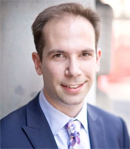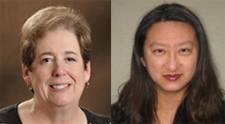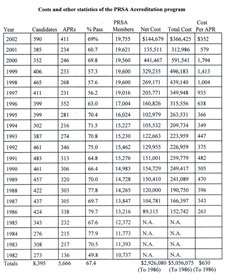A PR practitioner who puts "APR" after his or her name is apt to remind clients of "Annual Percentage Rate" and is flying in the face of advice that use of such "post-nominal letters" is counter-productive.
So writes U.K. consultant Alex Singleton in a May 6 blog titled, "Why the letters APR are bad for your wealth."
 Singleton |
The APR process was at one time much more demanding. A PRSA member who took the test in 1989 said it was “a two-day exam that included six-hours of non-stop writing and was the most intellectually draining test I had probably ever taken” (from Dec. 31, 1989 O’Dwyer’s Newsletter).
Singleton had a 15-year career in U.K. journalism for major media including his last three years at the Daily Telegraph before opening his own firm in 2011.
By coincidence the Universal Accreditation Board has announced that 167 practitioners in the eight participating groups won their APRs in 2012.
Since PR Society of America members are typically 85% of new APRs, that means about 140 became APR in 2012.
PRSA APR Participation Plummets
The number shows how far APR has slipped among Society members in the past couple of decades.
In 1982, when there were only 10,737 members (vs. 21,000 currently) 136 new APRs were created.
In 1992, when there were 15,462 members, 346 new APRs were created or two-and-a-half times as many as in 2012.
In 2002, when there were 19,755 members, 411 new APRs were created or three times as many.
Average new Society APRs created in the ten years from 1993-2002 was 274. In the nine years since the multiple-choice test replaced the all-day exam that required writing the average number of new APRs created each year was 136.
 Barnes, Sha |
Not yet available from UAB chair Susan Barnes of Belmont University, Nashville, or vice-chair Bey-Ling Sha of San Diego State, is how many from each of the eight member groups made their APRs.
Consultants Nix Letters Except Ph.D.
Singleton quotes Alan Weiss, author of Million Dollar Consulting, as writing that "Using any other initials [apart from Ph.D.] at all, whether college degrees, certification of courses completed, or professional recognition, is unnecessary at best and amateurish at worst…"
Such designations help to establish a pecking order within the association but mean nothing outside it," Weiss further writes.
Singleton adds some more knocks to APR including the fact that only 7% of PR Society members in New York—"the financial capital"--are APR.
He finds it "incredible" that the APR process at no stage tests writing or creativity, "the most vital skills that a practitioner ought to possess."
Candidates in the "Readiness Review" appear before APR committees and present materials that they supposedly worked on. However, there is no "on-the-spot" writing.
Singleton also notes that ongoing dues payments (currently $255 yearly) are required if APRs are to keep their designation.
There is also a $50 fee every three years for "maintenance" of APR. The Society keeps tabs of books read, courses taken, etc., requiring a certain minimum of educational activity of APRs.
APR Improperly Used by PRSA Leaders
The Guidelines of the UAB say the designation may not be used for competitive purposes: "Members who are Accredited may use designation of their Accredited status on resumes, in job interviews and in client presentations. However, Members who are Accredited cannot imply the lack of Accreditation in any way affects a competing professional's competence."
However, this is just what has been happening for many years at the PR Society which bars non-APRs from competing for national office or the national board. Non-APRs are barred from serving on the Ethics Board, implying they are somehow less ethical than APRs.
Members who attain the national board then use that fact in seeking jobs and accounts. Non-APRs are unable to claim such national recognition.
APR Blocks Democracy at Society
Noting that only APRs have been able to hold national office since the 1970s, Singleton says "reformers who want a democratic Society deserve to be heard. In 2010, the Committee for a Democratic PR Society was formed by industry leaders including the legendary Richard Edelman.
The Committee said it ‘does not believe that democracy is being served as long as a small minority of its members can hold elective officer. We believe that many worthy members who meet national leadership criteria in many other ways are being deprived of the opportunity to serve the organization.'"



 PR Society of America has retained the Organizational Performance Group, Hamden, Conn., to do research on its accreditation program and offer advice on how to improve it.
PR Society of America has retained the Organizational Performance Group, Hamden, Conn., to do research on its accreditation program and offer advice on how to improve it. This is an open letter to
This is an open letter to 


 Have a comment? Send it to
Have a comment? Send it to 
No comments have been submitted for this story yet.